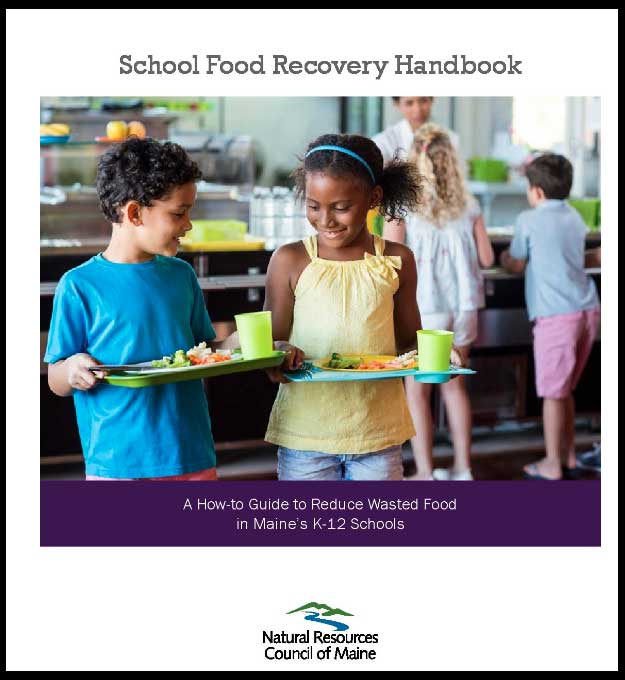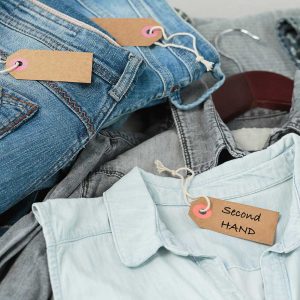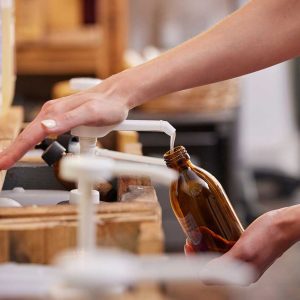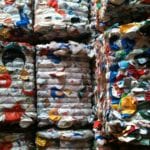Watch this video to learn how Maine's new reuse law, LD 2091, came to be, thanks to business owner Kate Pilotte, who saw a need, contacted her legislator, and helped pass a law that will allow businesses to provide food in reusable containers and receive them back for sanitizing.
One of the best ways to prevent plastic waste and reduce climate pollution is to reuse products and their packaging.
We often hear messages that encourage consumers to find their own creative ways to reduce and reuse, but the best way to encourage widespread adoption is for corporations to make reuse the norm. Government has a role to play in passing policies that encourage reuse and discourage wasteful packaging.
The Natural Resources Council of Maine created this Reuse & Refill Toolkit to empower communities across Maine to pass laws and build programs that support reuse and refill. You’ll find model city/town ordinances, fact sheets, reports, and many more resources to help you kick-start reuse in your community. The toolkit is divided into policy and program (non-policy) sections – every community is different so you can start with just one idea, mix and match, or pursue them all!
Not sure where to start? No matter which path you choose, we recommend starting with Upstream’s Roadmap to Reuse.
Why Reuse?
In today’s throw-away culture, 10% of wood harvested, 20% of aluminum mined, 40% of plastic created, and 50% of glass produced goes primarily to making single-use packaging and consumable products.¹
Reusable packaging breaks the cycle of extraction and waste by keeping valuable resources in circulation – helping us tackle climate change and save raw materials, water, energy, and money. Reusable packaging is also a major economic opportunity. The Ellen Macarthur Foundation estimates that converting just 20% of global plastic packaging would add $10 billion to the economy.
Reuse Programs
Focusing on voluntary initiatives and programs can help reuse take hold in your community by providing an opportunity to educate local businesses and institutions on the benefits of reuse and laying the necessary groundwork for future policies by building out infrastructure and services before businesses are required to use them.
Here are a few of our favorite reuse program ideas:
Reuse in Schools
Schools are the perfect place to launch a reuse program. Schools consume and dispose of billions of single-use food ware items annually and generate a lot of waste that is not easily recycled or composted.
 Here are a few resources to help you jump-start a reuse program in your local school:
Here are a few resources to help you jump-start a reuse program in your local school:
- Upstream’s Reuse in Schools toolkit includes case studies from schools that have made the transition to reuse around the country, with data on cost-savings and environmental benefits, lessons learned on logistics, and more.
- NRCM’s “Reducing School Food Waste” Toolkit will help you launch a food waste reduction initiative alongside a reuse initiative for a well-rounded sustainability program.
For college or university campuses, check out these additional resources:
- Sample single-use plastics reduction policy from California State University
- Campus outreach resources & tools from the Post-Landfill Action Network (PLAN)
- Break Free From Plastics movement Campus Pledge
Reuse at Restaurants
Foodservice is one of the most effective places to focus on reuse locally. Each year in the U.S., one trillion disposable food and beverage packaging items are used, comprising 67% of litter found in the environment.² Reuse saves businesses money for on-site dining 100% of the time³ – the average savings for a small business after transitioning to reusables is between $3,000 and $22,000 a year!
Check out these resources and guides for improving restaurant sustainability:
 Upstream fact sheet: Reuse Saves Restaurants Money
Upstream fact sheet: Reuse Saves Restaurants Money- ReThink Disposable’s resources page contains dozens of real world case studies
These guides from leading organizations outline detailed steps for restaurants to follow when transitioning away from disposables:
- Beyond Plastics: Hold the Plastic, Please
- PSI: 5 Easy Steps to Reduce Plastic & Benefit Your Business
- Surfrider: Ocean Friendly Restaurants & Ocean Friendly Foodware Guide (Learn more about the OFR program)
- Ready to talk to restaurants in your community? Check out Upstream’s educational hand-out for coffee shops!
Tip: Finding funding to help restaurants cover the upfront costs of switching to reusables can be critical in helping them make the switch. Plastic Free Restaurants is an organization that subsidizes the purchase of reusables for restaurants and schools.
Reuse for Retail
Around the world and increasingly in the US — including Maine — many grocers and retailers have experimented with reusable packaging, from reusable shopping bag pilots to bulk refill stations and more. Try reaching out to your local retailers, from grocers to dry cleaners, to encourage them to adopt reuse solutions. Often it’s a matter of connecting them to the right service providers, who can help provide the systems they need to get started.
Here are some resources to help:
 Companies offering bulk goods services to retail stores:
Companies offering bulk goods services to retail stores:
- Unpackaged: Covers all the steps in the bulk sale process – tare, fill, weigh, label, and pay.
- Goods Holding Company: Offers a reusable glass and metal jar system for bulk bin shopping, with the tare weight printed right on the jar.
- Miwa: Offers a smart circular system for bulk shopping – reusable capsules that fit the logistics and hygienic standards of supermarket chains.
- Econesia: Water filters and reusable bottles for hotels and businesses.
Tip: For a comprehensive list, check out Perpetual’s Living Landscape of Reuse Solutions and Upstream’s Reuse Business Directory.
- Beyond Plastics' Guide for Dry Cleaners to Move Beyond Single-use Plastic is all about helping dry cleaners switch to reusable garment bags!
- Beyond Plastics' guide to demonstrating at retail locations.
- NRCM letter template to businesses to reduce plastics and switch to reuse.
Launch a Reuse Coalition
If you’re serious about organizing locally to enable reuse, consider starting a coalition with others in your community. This is the best way to build capacity among your peers, build momentum for change, and have fun along the way. Consider taking any of these steps to start:
 Join the Reuse Solutions Network — a space for governments, NGOs, reuse entrepreneurs, consultants, and others generally interested in reuse. Government agency staff may also wish to join the Government Reuse Forum. These forums provide a place for those active in the reuse movement across the US and Canada to share ideas, develop resources, learn from one another and celebrate each others’ successes.
Join the Reuse Solutions Network — a space for governments, NGOs, reuse entrepreneurs, consultants, and others generally interested in reuse. Government agency staff may also wish to join the Government Reuse Forum. These forums provide a place for those active in the reuse movement across the US and Canada to share ideas, develop resources, learn from one another and celebrate each others’ successes.- Browse Upstream’s directory of community reuse coalitions around the country — including Maine’s first reuse coalition, Reuse Portland! Reach out to these groups to connect and learn. Upstream also facilitates a learning network for coalition leaders called the Reuse Coalition Leadership Network — you can sign up to learn more at the bottom of the directory page.
- Read Upstream’s Step-by-Step Guide to Starting a Reuse Coalition
More Ideas:
- NRCM's Reuse Local Policy Resources
- Beyond Plastics’ guide to Reusable Meals on Wheels
- Host a documentary screening & panel discussion. For example, see Beyond Plastics’ “Story of Plastic” screening guide.
- Reuse at Events:
- Beyond Plastics’ Plastic-free Event Guide
- Upstream’s Reuse Wins at Events report features a lifecycle analysis of reusable and single-use cups.
- Many companies offer rental reusables, such as cups, for events. For example: EventCup, DishCircle, and Sustain LA.
1 Upstream’s New Reuse Economy Report
2 Upstream's Reuse Wins report: https://drive.google.com/file/d/1opgKG9Xr63-vIT-yTlhMp85-PZz6ltgf/view
3 Upstream's Reuse Wins Report













